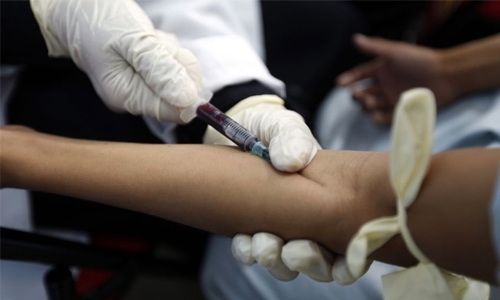India launches efforts to reduce diarrhoea deaths in children
New Delhi : Indian health ministry has launched an Intensified Diarrhoea Control Fortnight (IDCF) across the country to reduce child deaths due to diarrhoea, officials said Thursday.
The efforts are aimed at creating mass awareness among the population about the most effective and low-cost diarrhoea treatment, a combination of Oral Rehydration Salt (ORS) solution and Zinc tablets.
"The ministry has made it a national priority to bring health outcomes among children to a level equitable with the rest of the world. Through this initiative, the ministry will mobilize health personnel, state governments and other stakeholders to prioritize investment in control of diarrhoea, one of the most common childhood illnesses," a health ministry spokesman said.
The officials said intensified community awareness campaigns on hygiene, promotion of ORS and Zinc therapy will be conducted at state, district and village levels.
Nearly 120 million children under the age of five years would be covered during the program across India, he added.
Health officials said diarrhoea can be prevented with safe drinking water, sanitation, breastfeeding, appropriate nutrition and hand-washing.
"Almost all the deaths due to diarrhoea can be averted by preventing and treating dehydration by use of ORS, administration of Zinc tablets along with adequate nutritional intake by the child," the spokesman said.
According to Indian health ministry, despite a consistent decline in the infant mortality rate and under-five mortality rate due to increased access to immunization and child healthcare services, an estimated 1.1 million children die each year in country, including 101,000 deaths due to diarrhoea.
According to WHO, diarrhoea is the second leading cause of death in children under five years old, and is responsible for killing around 525 000 children every year. Diarrhoea can last several days, and leave body without water and salts that are necessary for survival.
Diarrhoea is defined as the passage of three or more loose or liquid stools per day. It is usually a symptom of an infection in the intestinal tract, which can be caused by a variety of bacterial, viral and parasitic organisms.
The infection spreads through contaminated food or drinking-water, or from person-to-person as a result of poor hygiene.
Related Posts

